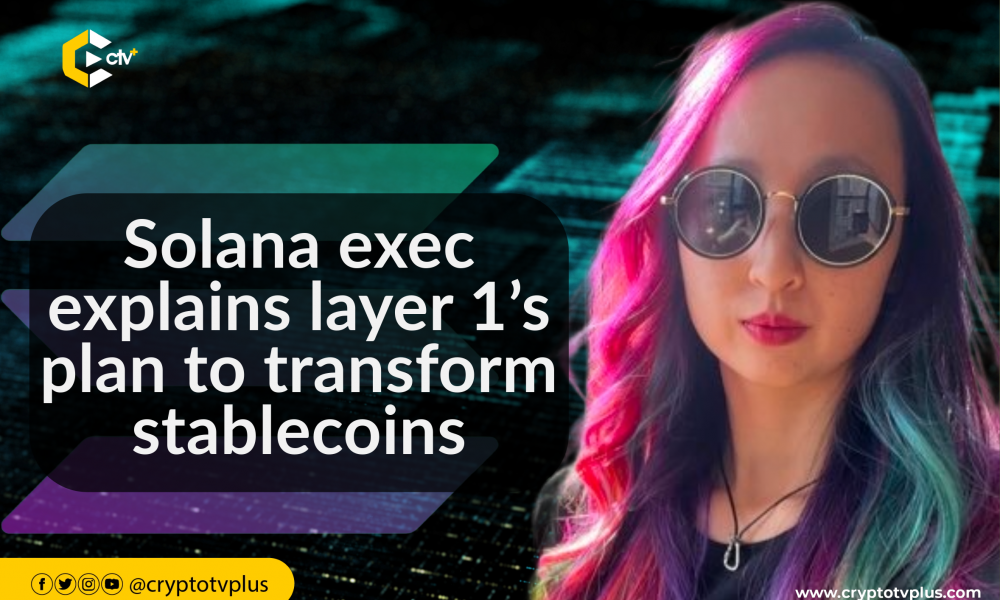
Cryptocurrencies have changed how we view money globally from the inception of Bitcoin in 2009. Beyond fiat currencies, there are now stablecoins which can be described as cryptocurrencies pegged on fiat, commodities, or other cryptocurrencies. All of these open a new door of opportunity to expand the use of money around the world.
Solana being one of the most popular blockchains in the industry, that is also transforming the world of global finance, has plans for this new kind of money as well as forex.
These plans were discussed by Anna Yuan, Growth Lead, Stablecoins and International Markets, Solana Foundation, at the Breakpoint 2023 event.
One of the most important concepts she introduced to the audience was CLAMMburger,” which stands for Concentrated Liquidity Automated Market Maker.
This approach utilizes an orchestration layer called Bridge API on the Solana blockchain to seamlessly convert various stablecoins across multiple chains into a chosen stablecoin.
The process involves using Bridge to convert different stablecoins into a predetermined USD stablecoin, concentrating liquidity through an automated market maker structure.
She emphasized Solana’s role as a robust execution layer for financial activities, highlighting the potential for building a diverse financial system on the Solana blockchain.
The macro focus on Stablecoins
Furthermore, Anna challenged the notion that money is stable, pointing out its volatile nature. Drawing attention to the privilege of considering money a constant, she introduced stablecoins as a groundbreaking concept, offering stability in the ever-changing world of finance.
Stablecoins are a type of cryptocurrency designed for stability by being pegged to a reference asset. They come in different types: Fiat-Collateralized backed by fiat reserves, Crypto-Collateralized using other cryptocurrencies, and Algorithmic, which relies on algorithms to regulate supply.
They offer a reliable value compared to volatile cryptocurrencies like Bitcoin and Ether. They find applications in payments, blockchain-based financial services, and everyday transactions, providing stability and encouraging adoption.
Providing a historical perspective, she traced the evolution of money from the gold standard to the current fiat system. She emphasized the potential of stablecoins, particularly on Solana, to reshape the global financial landscape.
Stablecoins and the future trends of money on Solana
Anna highlighted the role of stablecoins as a settlement token for various financial activities, including capital-efficient payments.
While acknowledging the significant growth in stablecoin adoption driven by centralized exchanges, she predicted a shift towards powering real economic activities in the upcoming cycles.
Furthermore, she outlined three trends that could shape the future of money in Solana. The first is diversified collateralization.
Here, she discussed the possibility of using various assets as collateral for stablecoins, offering an alternative to the traditional fiat-backed model.
Secondly, she mentioned the deepening divide between the US and non-US. Anna predicted a trend where the US would lean towards a crypto mullet approach, combining Web 2.0 and Web 3.0.
Simultaneously, the rest of the world would explore on-chain finance to distance itself from the US banking system.
Thirdly, programmable money and convergence. She believes in the convergence of storage of value and medium of exchange, highlighting the potential of programmable money to revolutionize trading and transacting.
Anna envisions possibilities like unified pools, combining liquidity, and exploring use cases such as payments, financing, yield farming, and on-chain finance within the burgeoning Solana ecosystem.
Additionally, the speaker raises a question about how to work with the traditional financial system while leveraging Solana’s speed and cost advantages to avoid potential panics in the crypto market.

















